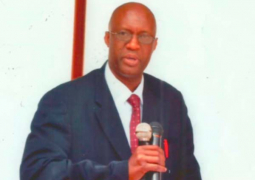
I am flabbergasted and perturbed about some Gambians’ political orientation and consciousness. With the advent of university education in the country, everyone would have expected that the political maturity and civilization will monumentally improve. But it is disheartening and, of course, worrisome to see and hear contemporary thinkers advancing arguments which are insults to intellectualism and democracy.
Of recent, there have been arguments orchestrated by some individuals that the emerging country (The Gambia) should be sacrificed to monarchical rule. This issue has been going on in town. People are left in a state of speculation. Articles published by The Standard newspaper and The Point newspaper on the 23rd May, 2014 also advanced that the issue was debated at the National Assembly by some parliamentarians. They argued that the country and its people should welcome kingship. This has provoked me beyond human endurance.
I have no right, however, to condemn their rights to freedom of expression guaranteed under section 25 (1) of the Constitution of The Gambia. They are entitled to their opinions. But, I believe the society deserves to be furnished with responsible, constructive and consumable information; and also laws that reflect social reality which are free from sentiments and self-service.
I must hasten to admonish them that it is unfortunate that their yearnings and aspirations are at variance with the 1997 Constitution of The Gambia. Section 214 (1) states that “The Gambia shall be a democratic state dedicated to freedom, peace, progress, prosperity and justice.” Thus, if you understand the legal principle of statutory interpretation, the word “shall” is mandatory and, therefore, it militates against your wishes.
This is also supported by section 1 (1) of the same Constitution which guaranteed the republican status of The Gambia. This means that the mode of operation of the government shall only be through representative government. This vested the supreme power in the people of The Gambia to periodically elect their president and, of course, parliamentarians. Therefore, monarchy or kingship is not within the aspiration and contemplation of the Constitution.
The idea of government based on monarchical rule is an obsolete concept. It has eroded and perished in the minds of the right thinking members of society. It is irreconcilable with civilize and progressive society. It is inimical to democratic norms and values. Therefore, it is an affront to common sense and, indeed, to our very people who fought and risked their lives to liberate The Gambia from the decadence of monarchical government to see 21st century thinkers promoting kingship in The Gambia.
Parliament in exercising their constitutional responsibility of law-making should execute it in accordance with the yearnings and aspirations of the electorate. Everyone agrees that a democracy requires the rule of the people, which is usually effectuated through electing representatives in a legislative body. Therefore, it is implied that representatives will always act in the best interest of the people.
There are pertinent issues in the country worthy of parliamentary deliberations such as the unemployment rate, minimum wage, inflation, 10% tuition fees increment at the University of The Gambia, illegal migration, mechanisms to implement the 2016 government agenda, adequate and reliable electricity supply nationwide etc. These are issues of great significance to Gambians than be labouring and wasting tax-payers’ resources on extraneous issues geared toward opportunistic pursuits.
In conclusion, The Gambia has gone far in establishing and promoting democracy. We have been quiet successful in diversification of our democratic norms and values, and the future if not polluted is brighter and promising.
Therefore,
as patriotic and honest citizens, we must cherish and protect the development
registered within the short period of self-determination.
SHERIFF KUMBA JOBE
UNIVERSITY OF THE GAMBIA
FACULTY OF LAW


